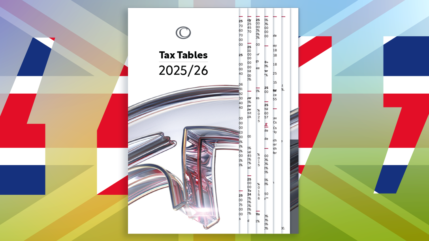Trusts are a valuable way for individuals and families to manage and control their assets and can be set up for any number of reasons.
Some popular reasons for setting up a trust include:
- managing the affairs of a young person or someone who is incapacitated
- passing on assets according to your wishes
- mitigating tax liability on a personal estate
Importantly, as a trust is held separate from an individual’s (the settlor’s) own estate, trustees can immediately access trust assets without waiting for probate to be granted.
While not a substitute for detailed professional advice, the following is designed to give you an idea of the types of trusts available, and how depending on your circumstances certain types of trusts might meet your needs.
Are you UK-domiciled?
The first question to consider is whether you are UK domiciled. The rules on this are complicated, but one condition where HMRC would deem a person to be UK domiciled is where they have been living in the UK for 15 of the last 20 tax years. For those people who are currently resident in the UK, but have not yet achieved UK domicile status, setting up what is called an Excluded Property Trust could reduce their Inheritance Tax (IHT) bill.
If you yourself are not able to take advantage of an Excluded Property Trust because you are UK-domiciled, perhaps your spouse or civil partner qualifies as a Non-UK domicile, in which case they could benefit from this type of trust.
Access to capital
Irrespective of someone’s marital or tax status, an important consideration is the willingness to give up access to capital. When using a trust, there is generally a trade-off between the IHT efficiency of the trust and the access to capital for the person making the gift. The greater the IHT efficiency, the less access the donor will have to the money they have paid into the trust.
For example, if you are prepared to give up access to the capital in the trust, and with it any income that flows from that capital, then a Gift Trust, which is IHT efficient may suit your requirements.
However, individuals who wish to undertake IHT planning, but don’t wish to lose access to their investments could consider a Discounted Gift Trust. This type of trust can work well for people who want to draw a regular pre-determined payment throughout their lifetime.
Alternatively, an individual who wants to mitigate the effects of IHT, but who requires access to their original capital might find that a Loan Trust meets their needs. This allows the individual full access to their original capital at any point, however, any growth in capital will not be included in their estate for IHT purposes.
For someone who wants the flexibility to defer or change access to capital and income if circumstances change, a Flexible Reversionary Trust could meet their requirements.
However, where you are not prepared to give up access to income or growth, a trust may not be effective at all. Life assurance might be better suited to meeting your estate planning needs.
Interests of the beneficiaries
Trusts can undoubtedly be a valuable way for individuals to manage their assets in a way that suits their individual circumstances and needs and those of their family. Above all, the interests of the trust beneficiaries is a major consideration when deciding whether to set up a trust and which trust to choose.
For some individuals and their families, of course, a trust may not be the best option and another solution, such as gifting, or as mentioned above life assurance, may be more suitable. For more information on trusts and possible alternatives, please speak to your Courtiers Adviser.
Key features of main types of trust
Excluded Property Trust
- Suited to someone who is living in or moving to the UK and is not yet UK-domiciled or deemed to be UK-domiciled.
- A person is deemed to be UK-domiciled once they have been resident in the UK for at least 15 of the last 20 tax years.
- Trust property is normally exempt from UK IHT.
- Access to capital for settlor and beneficiaries at any time.
- Trustees control investments.
- Not normally suitable for someone currently living overseas who was born in the UK and is planning to return to the UK.
Gift Trust
- Suited to someone who wants to reduce their IHT liability on their estate and is prepared to gift money outright.
- Property settled into trust becomes exempt from IHT after seven years.
- Growth on investments is outside of the settlor’s estate from the outset.
- Payments can be made to beneficiaries at any time.
- The Settlor (who places money or assets in the trust) can choose the investments.
- Settlor has no right to capital or income from the trust, directly or indirectly.
- Settlor can alter the beneficiaries and their share of the assets if the trust has been set up on a discretionary basis.
Discounted Gift Trust
- Suited to people who are prepared to give away surplus capital but still need regular payments from that capital to supplement their income.
- The settlor(s) can choose the level and frequency of income payments.
- Income is payable for the rest of the settlor’s life or until the fund is exhausted.
- For IHT purposes, the amount given away may be discounted by the future value of the regular payments to the settlor.
- Amount discounted is immediately outside settlor’s estate for IHT.
- To be effective for IHT, income should be spent by the settlor and not allowed to accumulate back in their estate.
Flexible Reversionary Trust
- Suited to someone who wants to have flexibility to defer or change access to capital and income if circumstances change.
- More IHT efficiency than a loan trust.
- More flexible than a discounted gift trust.
- Initial gift is outside settlor’s estate after seven years.
- Growth is immediately outside settlor’s estate.
- The main trust investment is divided into a series of policies that provide the settlor with absolute entitlement to the proceeds of each policies on sequential maturity dates.
- Sequential policies typically mature on an annual basis.
- Maturity proceeds revert to the settlor.
- Maturity dates can be deferred until such time as funds are needed.
- Policies can be assigned to meet cost such as grandchildren’s university costs.
Gift and Loan Trust
- Suited to someone who wants to start estate planning but is uneasy about gifting capital immediately in case they need it in the future.
- The settlor makes an interest-free loan to the trust.
- Loan is repayable on demand.
- The outstanding loan amount is part of the settlor’s estate for IHT.
- Any growth in capital is excluded for IHT purposes.
- Settlor can demand the balance of the outstanding loan at any point, giving them access to capital at any point.
- Loan can be waived or gifted at any time. This will create an IHT liability.













